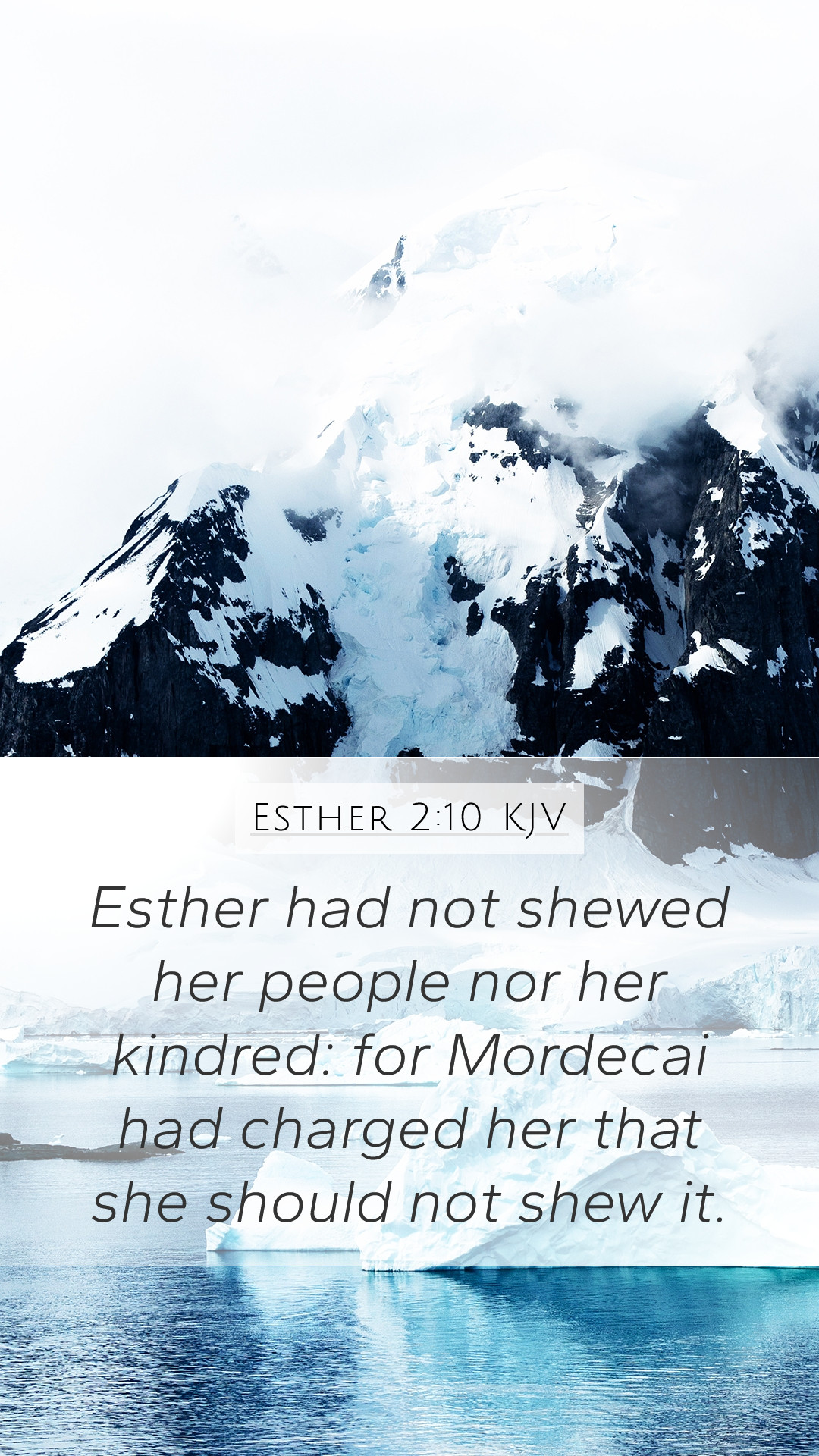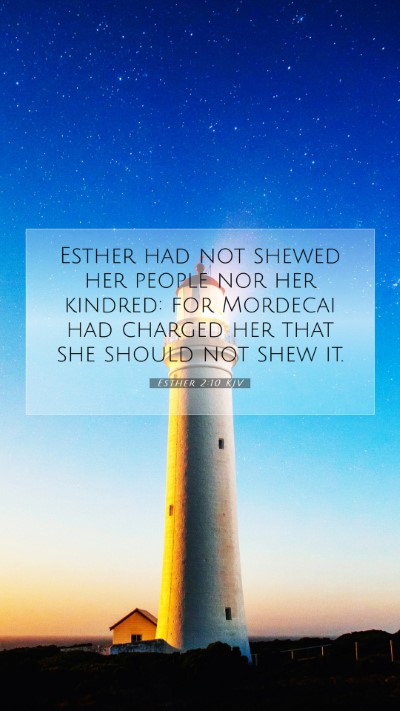Old Testament
Genesis Exodus Leviticus Numbers Deuteronomy Joshua Judges Ruth 1 Samuel 2 Samuel 1 Kings 2 Kings 1 Chronicles 2 Chronicles Ezra Nehemiah Esther Job Psalms Proverbs Ecclesiastes Song of Solomon Isaiah Jeremiah Lamentations Ezekiel Daniel Hosea Joel Amos Obadiah Jonah Micah Nahum Habakkuk Zephaniah Haggai Zechariah MalachiEsther 2:10 Meaning
What is the meaning of Esther 2:10?
Esther had not shewed her people nor her kindred: for Mordecai had charged her that she should not shew it.
Esther 2:10 Bible Verse Meaning
Bible Verse Meaning of Esther 2:10
Esther 2:10 states: "Esther had not revealed her people nor her kindred; for Mordecai had charged her that she should not tell it."
Overview of the Verse
This verse is a pivotal moment in the Book of Esther, highlighting Esther's obedience to Mordecai and the importance of her concealed identity. It speaks to themes of nationality, loyalty, and the unfolding of God's providential plan.
Historical Context
Understanding the historical backdrop of Esther is crucial. The events take place during a time when the Jewish people were in exile in Persia. Mordecai, Esther’s cousin, advised her not to disclose her Jewish heritage, which underscores the dangers Jews faced and sets the stage for later events in the narrative.
Commentary Insights
-
Matthew Henry's Commentary:
Henry emphasizes Esther's discretion and wisdom. Her choice to conceal her identity shows prudence and highlights the sensitive nature of a Jewish identity in a foreign land.
-
Albert Barnes' Notes:
Barnes points out the significance of loyalty and the relationship between Esther and Mordecai. He interprets Esther's silence as a strategic move to protect herself and her people until the right moment.
-
Adam Clarke's Commentary:
Clarke explores the implications of Esther's hidden lineage and the tension it creates in the unfolding drama. He notes that her actions were both a demonstration of faithfulness to Mordecai and a form of self-preservation.
Thematic Analysis
-
Loyalty and Obedience:
Esther’s decision to hide her lineage reflects her loyalty to Mordecai and his guiding role in her life.
-
Identity and Secrecy:
The concealment of her Jewish identity speaks volumes about the issues of assimilation and survival among exiled peoples.
-
Divine Providence:
This verse foreshadows Esther’s critical role in the rescue of her people, highlighting how her initial silence is part of a larger divine plan.
Application to Daily Life
This verse’s implications stretch beyond its immediate context. It invites readers to consider the balance between revealing one's true identity and navigating culturally sensitive situations. In a contemporary setting, believers might reflect on questions of faith representation, the importance of guidance in decision-making, and when to speak or remain silent in matters of personal conviction.
Cross References
- Esther 4:13-14: Mordecai’s further insistence on Esther’s duty to her people.
- Daniel 1:8: Daniel’s determination to maintain his identity in a foreign culture.
- Acts 4:19-20: The apostles’ commitment to their faith amidst persecution.
Conclusion
In summary, Esther 2:10 serves as a crucial moment of decision and character formation. Through careful commentary analysis and thematic exploration, this verse enhances our Bible verse understanding and offers valuable Bible study insights for both personal reflection and group discussions.


